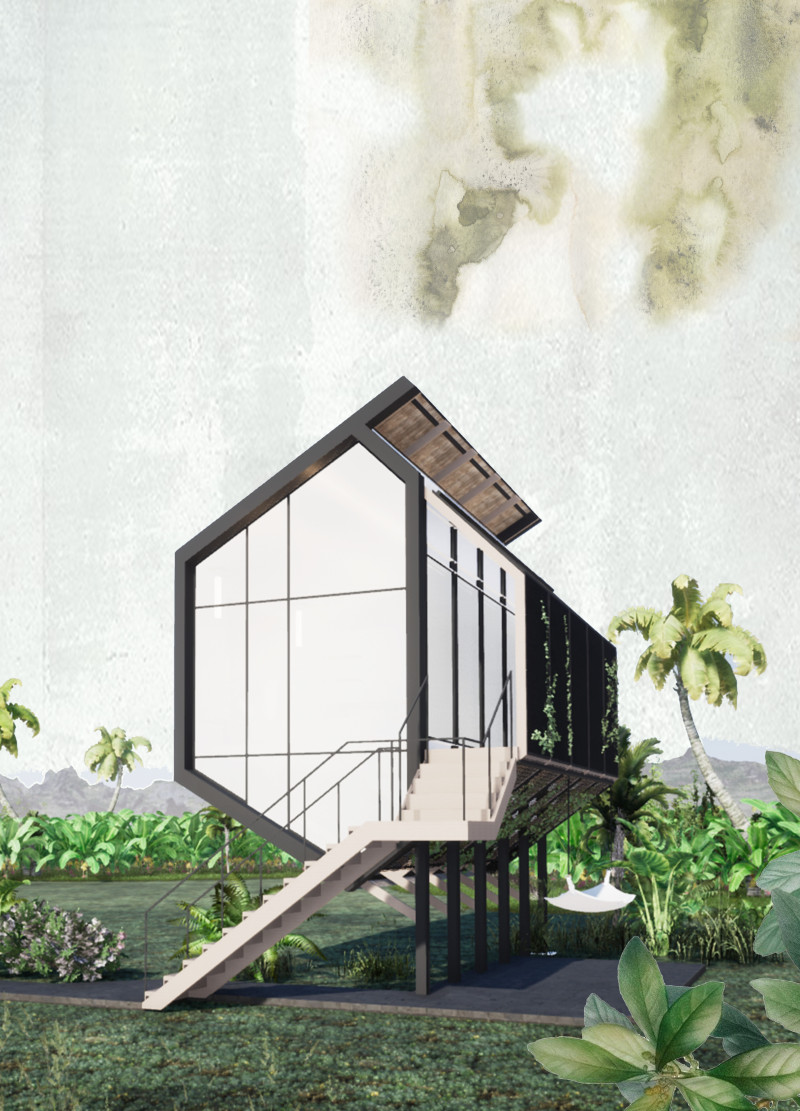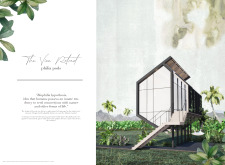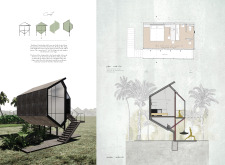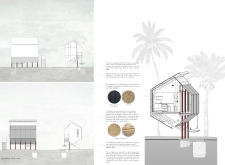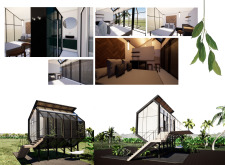5 key facts about this project
The Vine Retreat: Philia Pods combines modern design with natural elements, situated in a landscape that enhances its role as a peaceful getaway. Inspired by the idea of biophilia, which highlights the connection between humans and nature, the design is also influenced by traditional Cambodian stilt houses. The structure achieves a delicate balance by providing elevated spaces that foster interaction with the environment.
STRUCTURAL INTEGRITY AND ELEVATION
The design features steel columns that are anchored by concrete footings, forming a strong framework. This approach raises the pod above the ground, protecting it from seasonal flood risks and allowing for improved views of the surrounding area. Elevating the structure not only enhances the spatial experience but also invites natural light and fresh air into the living spaces.
ADAPTABILITY AND FUNCTIONALITY
A key aspect of the Philia Pod is its adaptability. The design accommodates different privacy levels and uses, creating spaces suitable for quiet reflection, yoga, or meditation. Features such as sliding doors and mosquito nets provide flexibility, allowing occupants to engage with their environment as they see fit. The elevated balcony extends outward, offering access to the landscape and deepening the connection to nature.
ENVIRONMENTAL INTEGRATION
The project pays careful attention to environmental considerations. Efficient water management is evident in the roof gutter system, which directs rainwater to an underground storage tank. This system connects to a solar-powered geyser, promoting sustainability and responsible resource use. These elements work together to create a structure that respects its natural surroundings.
Layered façades provide additional functionality, with screens that can be adjusted to balance openness and privacy. This design approach fosters a continuous interaction between indoor and outdoor spaces, enhancing both comfort and the overall experience of being in nature. The Philia Pod invites users to embrace their surroundings while enjoying the simplicity of modern living.


